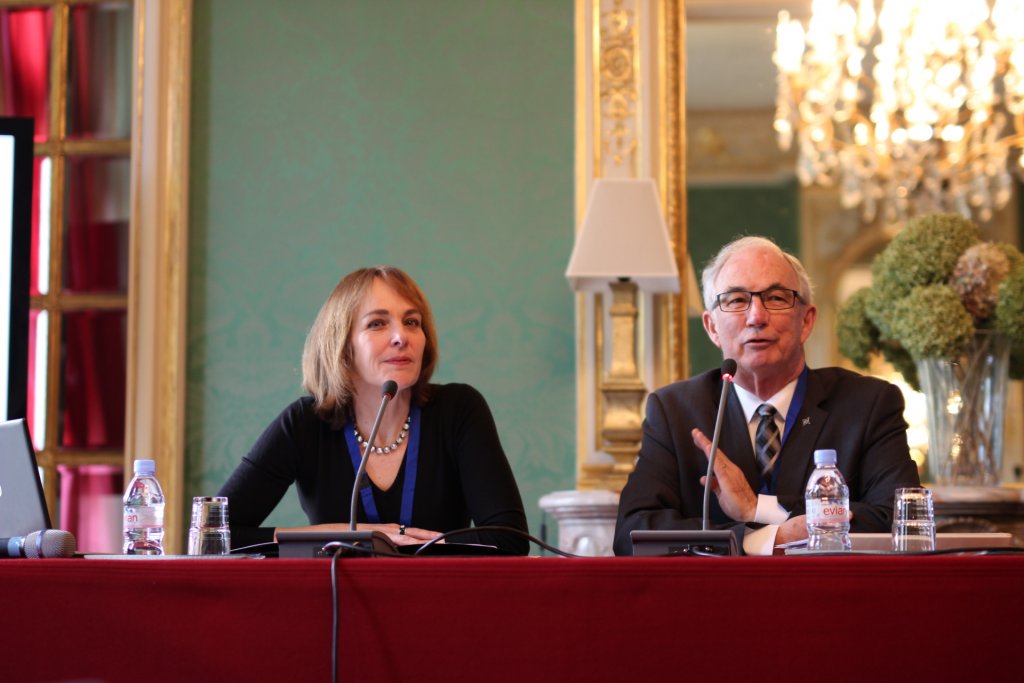The Annual Report for the year 2016 sums up our key achievements in the year.

1. Introduction

1. Introduction
The year 2016 was one that saw the start of what might be a defining moment in the history of ICSU. In late 2015, I exchanged letters with Alberto Martinelli, the President of the International Social Science Council (ISSC) to explore with him the possibility of a closer alignment and even potential amalgamation of ICSU and ISSC, two organizations that have a long history of fruitful collaboration around a range of projects. The ISSC President responded favourably, and throughout 2016 we worked hard with colleagues at the ISSC and a number of eminent experts from outside the network to explore future scenarios.
This culminated in a historic first joint General Assembly of both organizations held in Oslo, Norway, in October. There, the members of the two organizations voted in principle in favour of a merger between the two Councils, with the final decision to be taken at the 32nd ICSU General Assembly following the development of a new strategy and statutes for the proposed new Council. I am delighted by the strong show of support by our Members and by the many encouraging conversations I had with colleagues from the scientific world, who have confirmed that the time is right for the natural and social sciences to come together in one unified organization to address global challenges.
In the meantime, ICSU continued to deliver excellence in its core areas of work. There were a number of highlights in 2016 on the science-policy front, including the provision of scientific inputs to the UNISDR Science and Technology Conference on the Implementation of the Sendai Framework for Disaster Risk Reduction 2015-2030 and the UN Commission on Science & Technology for Development. Scientific side events were organized at the High-Level Political Forum on the Sustainable Development Goals at the United Nations in New York and at the 22nd Conference of the Parties on Climate Change in Marrakech. The 2016 Habitat III: UN Conference on Housing and Sustainable Urban Development, Quito, Ecuador, recognized the fundamental importance of addressing sustainable development issues in cities. The Council, with partners, organized Habitat X Change to promote science and data visualization for the urban future. The space quickly became the focal point for science–policy dialogue at the conference. The Future Earth Urban Knowledge Action Network was launched at the conference and this will work with the ICSU co-sponsored Health and Wellbeing in the Changing Urban Environment programme in addressing complex urban issues.
It is with great pride that I look back on ICSU’s achievements in 2016. Going forward, as we continue to work on a proposed merger with the International Social Science Council, I feel confident that the long history of successful collaboration between the two organizations in key programmes such as Future Earth and the Integrated Research on Disaster Risk Programme can only point to an even brighter common future for both.
As President, I wish to thank all our National and International Union Members for their support, and the Secretariat members – including those in our Regional Offices – for their outstanding contributions during 2016. I look ahead, very positively, to great accomplishments during 2017.
Gordon McBean, President
1. Introduction
For the International Council for Science, 2016 was a year of engaging with change. The impetus for innovation and creativity came from a number of directions. One was our commitment to push on with implementing the Executive Board’s responses to the 2014 External Review; another, the need to develop ideas for taking ICSU beyond its current strategic plan.
In October, these two strands of strategic development effectively converged when, during a historic joint General Assembly with the International Social Science Council (ISSC), our Members gave us a strong mandate to pursue the idea of a merger between the two organizations. Following this decision in principle, the Executive Board decided not to continue with the development of a new, independent ICSU strategy. Instead, the thinking that had gone into this process, as well as the External Review response, has been embedded within the remit of two new ICSU and ISSC working groups – a Strategy Working Group and a Transition Task Force – that have been tasked to develop proposals for a high-level strategy and organizational structures for a new, merged organization.
In October 2017, our members will make a final decision in favour of, or against, a merger, and they will do so on the basis of the outputs of these two groups. I am confident that ICSU’s achievements in 2016 will contribute significantly to inspiring their work. In this regard I am particularly proud of the progress we made throughout 2016 in taking forward several new ideas, including:
These activities really highlight the importance for ICSU of synergistic, action-oriented partnerships, starting with our members and extending to our Interdisciplinary Bodies and other international scientific organizations. Drawing effectively on these partnerships will be critical at this moment of reinvention in which we now find ourselves. We will be working hard throughout 2017 to dig deeply into the creative resources and support of our Members and partners as we move forward.
Heide Hackmann, Executive Director